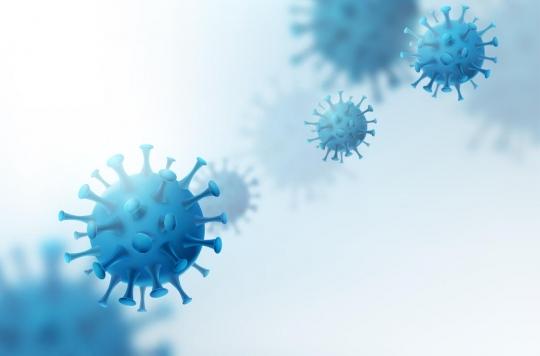In metropolitan France, the English variant of Covid-19 has become the majority. The others are very rare, the Indian variant still being unidentified within France.

- Mutations in Covid-19 variants mainly affect the protein responsible for attaching the virus to the respiratory tract (S protein, such as Spike or Spicule).
- To limit their spread, 10-day isolation is now mandatory for travelers from countries at risk, such as India, Brazil, Chile, Argentina and South Africa.
Faced with the ravages of the Indian triple variant, Public Health France takes stock of the circulation of Covid-19 mutations in mainland France. With regard to the variants qualified as “concerning (VOC)” the latest results show a stable situation: 82.3% matched suspected variant 20I/501Y.V1 (having emerged in the UK) on 22 April, and 4.2% corresponded to a suspected variant 20H/501Y.V2 (having emerged in South Africa) or 20J/501Y.V3 (having emerged in Brazil). “The results of the latest Flash surveys confirm the predominance of the English variant, followed by the South African variant. The Brazilian variant is still very rare”, say the scientists.
The Indian variant is not yet present in France
These worrying variants were detected in all metropolitan areas. The proportion of suspicions of the English variant was over 80% in 67 metropolitan departments and over 90% in 23 of them. The proportion of suspicions of the Brazilian or South African variant was greater than 10% in four departments (Creuse, Moselle, Haute-Saône and Vosges).
The 20A/484Q variant, which would have emerged in India, was detected in two travelers from India and in transit through Guadeloupe, but no autochthonous case has been identified in France to date.
Other rarer variants of SARS-CoV-2 are also subject to monitoring and risk analyzes regularly updated by the National Reference Center for Respiratory Infections Virus and Public Health France. Some have already been detected on the territory and benefit from reinforced surveillance. These include the following variants in particular: 20A/484K, detected more frequently in France recently; 20C/H655Y, having been identified in Brittany at the start of 2021 in the context of a hospital epidemic focus; and the 19B/501Y.
26.8% of the adult population is vaccinated in France
Since the start of the vaccination campaign in France, 14,096,492 people have received at least one injection (i.e. 21% of the total population and 26.8% of the adult population) and 5,539,585 people have received two injections (i.e. 8.3% of the total population and 10.5% of the adult population).
“Vaccination seems to be accompanied by a relaxation of barrier measures when it is nevertheless important to maintain them”, note public health experts. “It remains essential that anyone with symptoms suggestive of Covid-19 self-isolates immediately and undergoes diagnostic testing as soon as possible,” they add. They conclude: “the use of digital tools (TousAntiCovid) is recommended to reinforce contact tracing and rapid isolation measures.”

















